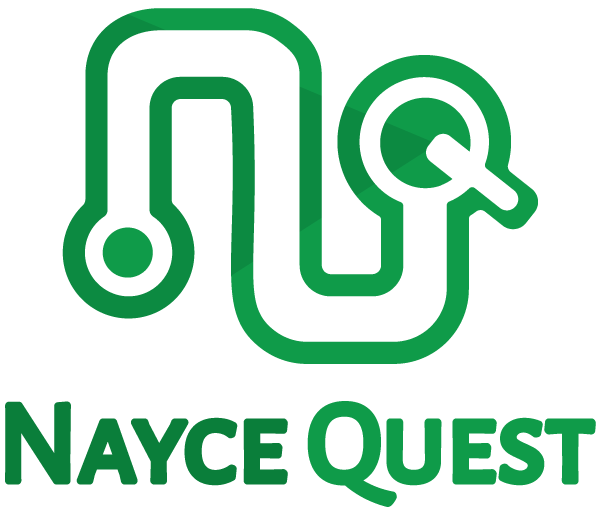Mother Knows Best: Navigating the World with Double Consciousness
When I was a young adult, my mother and I often had "disagreements" about the construct of race. My mother, who was Black, raised me to believe that despite being biracial (Black and White), the world will only see me as Black. I naïvely pushed back, thinking that we lived in a post-racial society and the world should see me as biracial, if anything at all. My mother's response would always end with, "When you're older, you'll understand." I genuinely wish my mother were here with us today to hear me say, "Mom, you were right." Unfortunately, my mother passed away from breast cancer when I was 25, well before I experienced the world and grasped an understanding through her lens.
I wrapped my first academic year as a sociology PhD student at George Mason University and reflected on the materials discussed throughout the semester. I connected several sociological theories with a lesson my mother attempted for me to learn all those years ago. I'm drawn to the concept of consciousness spatial connections: construction of realities, discovery of intersectionality in relationship with power, and the historical overviews of existing tensions from living in a Western-influenced world W.E.B. DuBois' well-known theory of "double consciousness" resonated with me because of my experience as a person of color often navigating in predominately White spaces. Societies function on interactions bordering multiple and complex cultural realities pushing us to be conscious of how we see the world and how the world reflects back to us.
Berger and Luckman stated, "The reality of everyday life further presents itself to me as an intersubjective world that I share with others. This intersubjectivity sharply differentiates everyday life from other realities of which I am conscious…All the same, I know that I live with them in a common world. Most importantly, I know there is an ongoing correspondence between my meanings and their meanings in this world, that we share a common sense about its reality." This tension of "my reality and the reality of others" is how we construct shared understandings of reality to produce knowledge to frame how people consciously navigate a world with multiple realities. My theoretical understanding of researching double consciousness deepened further when analyzing the works of Patricia Hill Collins, Donna Haraway, and Gloria Anzaldúa. In their own way, each of the theorists pushed me to understand the ways institutions of academia, government, and self-made tension uses of power to perpetuate inequalities by reducing theoretical frames of thinking in silos. I struggled to connect how I could use decolonization theories such as Frantz Fanon and Achille Mbembe. When engaging with decolonization theory, it felt as though the theory stopped short of providing tangible and realistic mechanisms to make meaningful changes. On the other hand, theories of colonialization and understanding human epistemologies expanded my ability to see how to navigate my reality while also embracing the reality of others. Sylvia Wynter's theory of human praxis provided the meaning I needed to go beyond identifying more than one consciousness and find ways of navigating realities of multiple consciousnesses. To fully understand the human experience, we need to have a hybrid consciousness of existence to understand how humans are natural (biological) and myth (formulation of schemas).
Social scientists need to be reflexive to avoid seeing reality through the lens of "either/or," but through the lens of "and" to capture realities different from our own. If the world we are studying has intersections of realities, then the theories used to study, measure, and communicate our findings need to be structured to accurately capture these realities. We need to apply critical theoretical approaches beyond analyzing the world in dichotomies and pitting social constructs in competitive hierarchies. In addition, we need to use a wide range of communication strategies to effectively engage with stakeholders to foster new knowledge in collaboration with stakeholders. Pulling from C. Wright Mills' we need to use a sociological imagination to reify the realities of understanding the world in ways the classical theorists wouldn't dare to imagine. Lastly, if we are to go through such lengths to understand the world, we should take as much effort to identify contexts where people are dehumanized and find practical means to right these wrongs if we want to make meaningful impacts in our diverse world.
If I had read these theories at the age of 25, they would not have resonated with me the same way they have a decade later to understand and apply the theory of double consciousness. While my professors have been amazingly insightful and supportive in my academic journey, I think there was an element to my mom's lesson of needing to experience the world to deepen my understanding of the concept of double consciousness. Boaventura de Sousa Santos stated in The End of the Cognitive Empire, "As concerns knowledges born in struggle, the construction of knowledge is the cognitive dimension of the very construction and development of the struggle." To fully grasp double consciousness and its interaction with navigating my world while understanding the reality of others, I needed to experience the world first-hand.
My education journey has been a tremendous gift to me. It has pushed me personally and academically to shape how I see the world and tangibly provide me the tools to navigate our world and contribute towards creating inclusive and equitable social constructs through the espousal of diverse human experiences. The added gift was the ability to reconnect with my mom's spirit and her life-long lesson. Happy Mother's Day, Mom.

